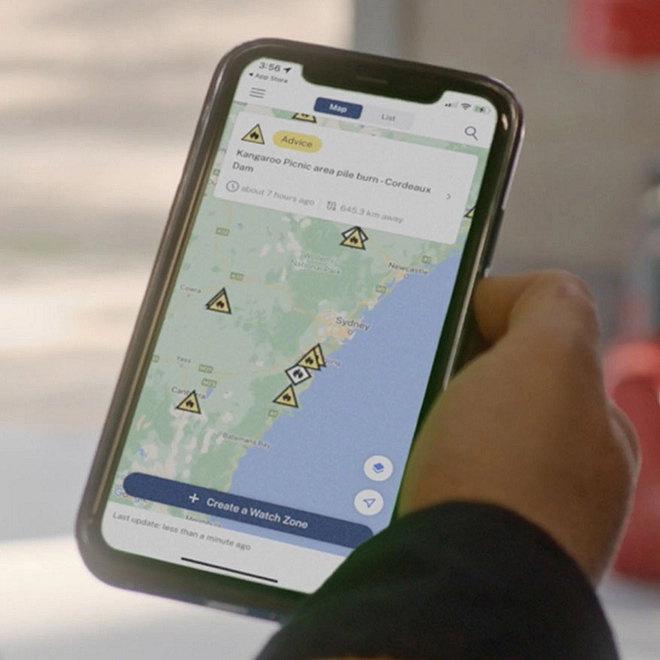To help protect Australia from cyberthreats, we hacked the system
Building diverse cyber talent. One cadet at a time
To help close Australia’s cyber skills gap, we found a new way to create the next generation of industry-ready cyber talent.
Cyber Academy is Australia's first earn-as-you-learn degree apprenticeship dedicated to cyber skills. Getting it off the ground required incredible collaboration among industry, government and education. The result? A solution that meets industry and student needs, aligns with government policy and positively disrupts education. Now, that's good thinking!

Would you hire a childcare worker, police detective or chef for a role in cybersecurity?
For Deloitte’s Duncan Ellis, it’s a resounding, ‘Yes’. In fact, these are the former professions of three students from the first cohort of Cyber Academy – an innovative educational, earn-as-you-learn degree-apprenticeship combining nationally recognised qualifications with on-the-job training and mentorship.
Cyber Academy was a big idea turned to reality by Deloitte, designed to fast-track students’ cybersecurity careers and help close the skills gap that sees Australia needing 17,600 more cyber professionals by 2026.
Duncan and his colleagues were determined to create a new educational model that not only gave students the right skills, but also crucial industry experience. This meant collaborating with key players across industry, government and education.
“Bringing the idea into reality required us to think differently,” says Duncan.
“The build, design, development and model came from CIO, CTO and CISO feedback from some of Australia’s top companies, plus federal, state and local governments,” he says.
The result? A solution that pushes the boundaries of education to align industry needs with educational compliance and regulation and puts students at the centre of success.
Students learn cyber skills through Australia’s top educational institutions, get paid on-the-job training with industry partners and by the time they graduate can seamlessly slot into the industry – often in the very teams that provided their work experience.
It’s a win-win for everyone.

17,600
Number of cyber workers needed by 2026
35%
Female representation in Cyber Academy, as of 2023
89%
Cyber Academy's participant retention rate, as of 2023

Passion finds a new pathway
Noor (Nora) Zafar always had a passion for computers. The Cyber Academy student watched ethical hacking tutorials as a kid and one of her first memories is of helping her dad fix computers in the garage. She built her first website for a school IT project after teaching herself to code.
“My mother always told me, ‘You're not here just to have babies, do the dishes and die. Do something useful with your life,’” Nora says.
The 27-year-old took her mum’s advice and ran with it, but not always in the direction she’d planned.
Nora studied a Bachelor of Science (Chemistry) at the University of Wollongong, followed by a “stressful” career in chemical engineering that was cut short by the pandemic. So, she changed tack and pursued a Master of Teaching, working part-time in childcare to fund her studies.
But her passion was still bubbling under the surface.
"I always wanted to study cyber to become an ethical hacker, but it's so hard to break into. Just doing a cyber boot camp is expensive."
In the final year of Nora’s teaching degree, she saw an ad for Cyber Academy.
“I thought, this is interesting, I can get paid to study my passion, so I decided to apply. I didn’t think I’d get in to be honest. Why? Because my background is too different. Who goes from teaching to cyber? It's a big gap.”
As Nora would soon discover, she was the perfect fit.
Diversity is one of the academy’s key aims
With Australia facing ever-evolving cyber threats, the cyber industry desperately needs a more diverse talent pool with different skills, backgrounds, personalities and abilities.
“The industry often relies on reskilling and upskilling IT professionals, which is a traditionally male-dominated area,” says David Hawks, Deloitte Partner, Cyber Strategy & Digital Transformation. “This makes it difficult for new, younger and more diverse talent to break in.”
Cyber Academy is designed to break down barriers, create more regional opportunities and boost female and neurodivergent participation.
“The fact that we've had close to 1500 applications for the Cyber Academy proves the success of the model,” says David. “Many are from traditionally lower socioeconomic areas and we have a 38% female participation rate within the program – more than double the industry average.
“We've also created regional jobs within local governments and health districts, which has been fantastic,” he says.
The academy has had amazing feedback from students, industry, government and education partners and there are opportunities to replicate the model across different industries, sectors and subjects.
“I honestly think this is the future model of education,” says Nora. “By combining work and part-time study, people get the best of both worlds – they’re learning on the job and can apply skills from class to better understand the content and context.”
So, back to that first question: would you hire a childcare worker, police detective or chef for a role in cybersecurity? If you’re rethinking your answer, then help us grow the academy. With more industry partners, Cyber Academy can expand and your organisation could have your own job-ready talent ready to help you be cyber-secure.

Delivered in partnership with




Opens in new window







